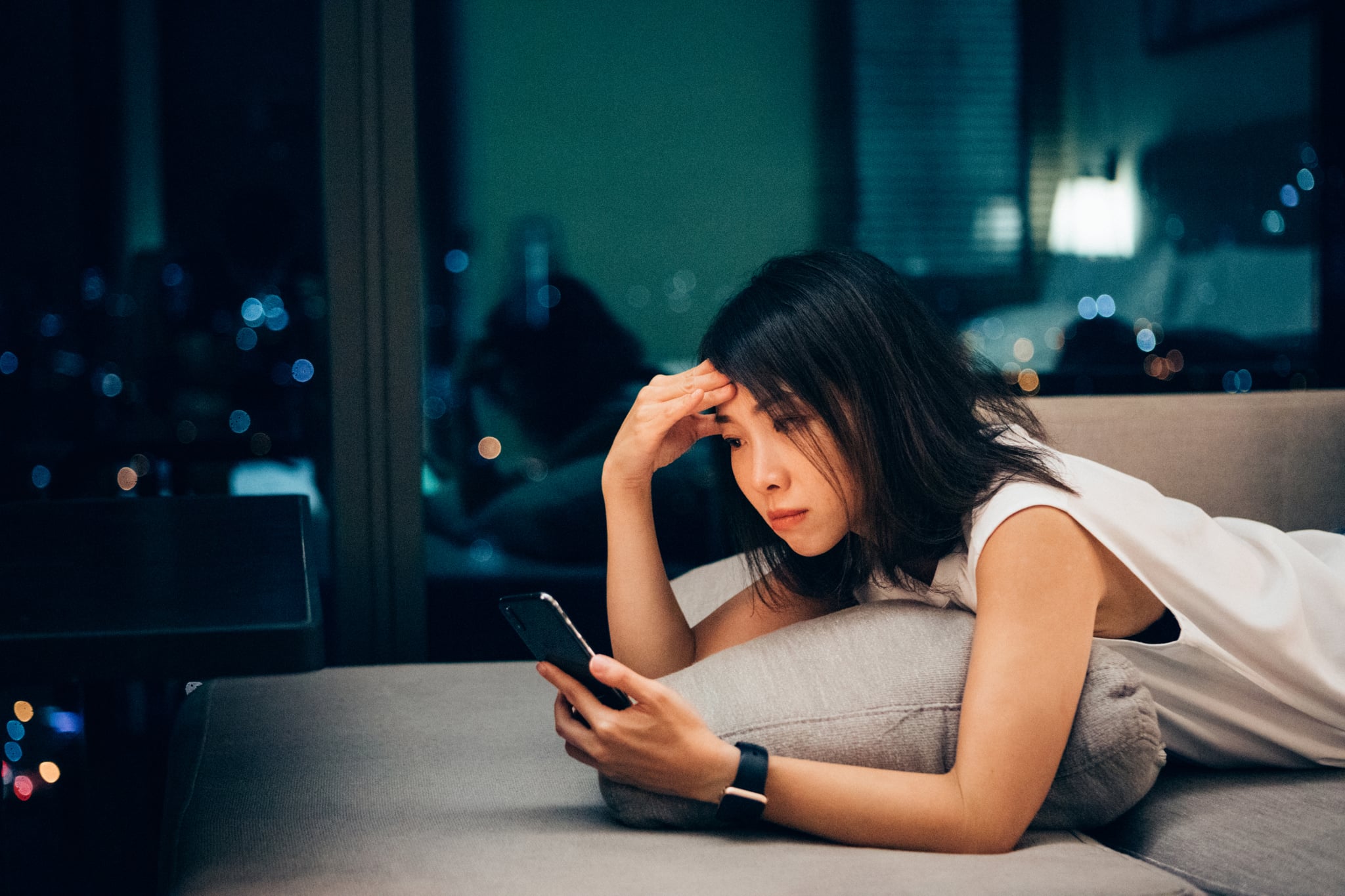
Content warning: This article mentions eating disorders, suicide, and suicidal ideation.
Sure, TikTok can be great for fitness trends [1] and food hacks [2], but it can also be a valuable resource for learning about mental health and for those struggling with their own mental illness to share their stories. For instance, we love the informative videos from mental health experts Dr. Kojo Sarfo [3] (@dr.kojosarfo [4]) and Dr. Marquis Norton [5] (@drnortontherapy [6]), but with millions of users uploading content to TikTok, the platform is cracking down on what gets shared in the algorithm and providing resources for its sensitive mental health content.
On Sept. 14, TikTok announced it would be providing well-being resources on its platform to help users who come across sensitive content. "While we don't allow content that promotes, glorifies or normalizes suicide, self-harm or eating disorders, we do support people who choose to share their experiences to raise awareness, help others who might be struggling and find support among our community," the brand announced in a press release [7].
In February, for National Eating Disorders Awareness Week, TikTok released new in-app support features [8] for those who are living with or recovering from an eating disorder, including providing access to the National Eating Disorders Association (NEDA) helpline on hashtags related to eating disorders (e.g. #edrecovery), and providing tips and support backed by eating-disorder experts.
Now, TikTok has released a new safety centre guide [9] focussed on eating disorders for teens, educators, and caregivers, created with the help of the NEDA, the National Eating Disorder Information Centre, the Butterfly Foundation, and Bodywhys. The platform also has included PSAs on sensitive hashtags, such as #whatieatinaday, to increase eating-disorder awareness.
It has also rolled out more search interventions, so when someone searches for #suicide, for example, they are directed to the National Suicide Prevention Lifeline and Crisis Text Line for support if they need it. TikTok will also serve up content of creators explaining how they recovered or more information on how to seek help, and users can opt in to see this content.
Since TikTok reaches millions of people a day, and social media has been known to be detrimental to mental health [11], it's important that a social media platform uses its power and influence for good, especially on a platform where so many people share their experiences and their stories.
"Considering that so many young people spend so much of their time on social media platforms, these new rollouts and other mental health resources are absolutely a step in the right direction," Crystal Burwell [12], PhD, LPC, the director of outpatient services at Newport Healthcare [13], told POPSUGAR. "It's basic social responsibility to ensure that users of your product or service are not being harmed. It's also essential that young people are given the right tools to manage what they are consuming online." She added that while this is a great start, there is still more that needs to be done to make sure people are taking care of their mental health while also consuming social media.
As for the content creators who make TikToks that reveal their own personal experiences or struggles with mental health, suicidal ideation, or eating disorders, Dr. Burwell said it can be helpful for others to see their experiences reflected back at them. However, for some, it might be best to tread lightly when consuming this content.
"When we see others talking about such personal topics, it can help us to feel that we are not alone in our struggles," she said. "These creators on TikTok have established communities for other young people to voice their experiences in a way that might not be comfortable or possible for people in-person or one-on-one. While this content may be helpful to some, it's also important to recognise that it may be triggering for others."
If you or someone you know is struggling with disordered eating or an eating disorder, the National Eating Disorder Association [14] (NEDA) has resources available, including a 24/7 helpline at 1-800-931-2237 or by texting "NEDA" to 741741.
If you or a loved one are experiencing suicidal ideation or are at risk, the National Suicide Prevention Lifeline has several resources and a 24/7 lifeline at 1-800-273-8255.
